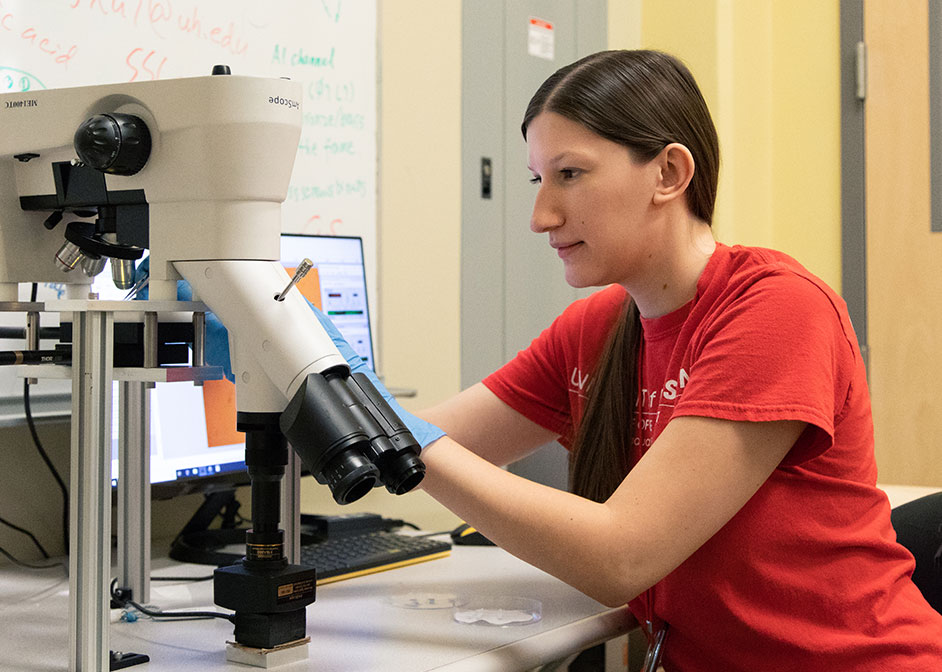Biochemistry Graduate Student Awarded Predoctoral Training Fellowship
Will Support Ribosomal Translocation Research
Miriam Gavriliuc, a second-year Ph.D. student in biochemistry at the University of Houston, was awarded a National Institutes of Health predoctoral training fellowship. This fellowship is administered through the Houston Area Molecular Biophysics Program (HAMBP), which is a collaborative graduate program with faculty from six Houston universities.

Renewable for up to three years, the fellowship supports Gavriliuc’s research on ribosomal translocation by providing her with a yearly stipend, tuition assistance, health insurance, and providing support to attend national conferences. Her research is conducted under the guidance of Yuhong Wang, associate professor of biology and biochemistry in the College of Natural Sciences and Mathematics.
Elongation Factor G: Facilitates Protein Production
Gavriliuc studies a protein, called Elongation Factor G, or EFG for short, which facilitates protein production. EFG works by moving messenger RNA, which acts as a template molecule, through the ribosome. This links different amino acids together, forming the peptide chains which make up proteins.
“Without EFG, the reaction would be extremely slow,” Gavriliuc said. EFG provides the ‘nudge’ needed to make the reaction run quickly and smoothly. As to exactly how EFG works, this is still an unanswered question.
Studying How EFG Attaches to Ribosome
To study EFG’s mechanism, Gavriliuc is using a technique developed by her advisor in collaboration with associate professor of chemistry Shoujun Xu. This technique, called Force Induced Remnant Magnetization Spectroscopy, or FIRMS for short, measures the force by which EFG moves the ribosome.
“How the ribosome goes down the mRNA is not well-understood,” Gavriliuc said. “This is a really good method for determining the force with which EFG moves the ribosome down the strand of messenger RNA.”
Gavriliuc will perform a series of experiments to determine the force by which EFG moves the ribosome, which will provide insight into its mechanism.
One advantage of studying EFG is that it is a protein specific to bacteria. In addition to gaining insight into how protein production works in humans, understanding EFG-specific mechanisms can also offer an alternative target for antibiotics.
Fellowship Offers Networking Opportunities
During the course of this fellowship, Gavriliuc will be taking courses at different institutions, while also benefiting from the connections offered by the Gulf Coast Consortia.
“This will give me the opportunity to meet people from different institutions,” Gavriliuc said.
HAMBP is part of the Gulf Coast Consortia, which is comprised of seven Houston-area institutions, with a goal of fostering interdisciplinary collaborative research teams and training programs in the biological sciences
- Rachel Fairbank, College of Natural Sciences and Mathematics
September 7, 2018